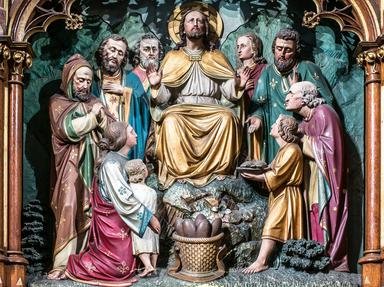Quiz Answer Key and Fun Facts
1. What is the name Deborah traditionally said to mean?
2. According to the Jerusalem Bible, which word is used to describe Deborah in Chapter Four, verse 4 of The Book of Judges?
3. True or false: According to Chapter Four, verse 4 of The Book of Judges in The Jerusalem Bible, Deborah was married to a man named Barak.
4. During what time period did Deborah judge Israel?
5. We need to clarify what the term "judge" signified in the world Deborah lived in. Here "judge" means which of the following?
6. The verse that introduces Deborah, Judges Chapter 4: verse 4 (Jerusalem Bible), states:
"Deborah...was judging Israel at the time."
Would it have been unusual for a woman to be in a position of authority such as judge in ancient Israel?
7. Deborah had a special place where "Israelites would come to her for justice." What was this place?
8. Why did Deborah send for Barak?
9. What was Barak's reply when Deborah commanded him in the name of God, "Go! March to Mount Tabor"?
10. Though Deborah agrees to accompany Barak she prophesies, saying, "Yahweh will deliver Sisera into the hands of a woman." Does this prophecy come true?
Source: Author
Catreona
This quiz was reviewed by FunTrivia editor
looney_tunes before going online.
Any errors found in FunTrivia content are routinely corrected through our feedback system.
